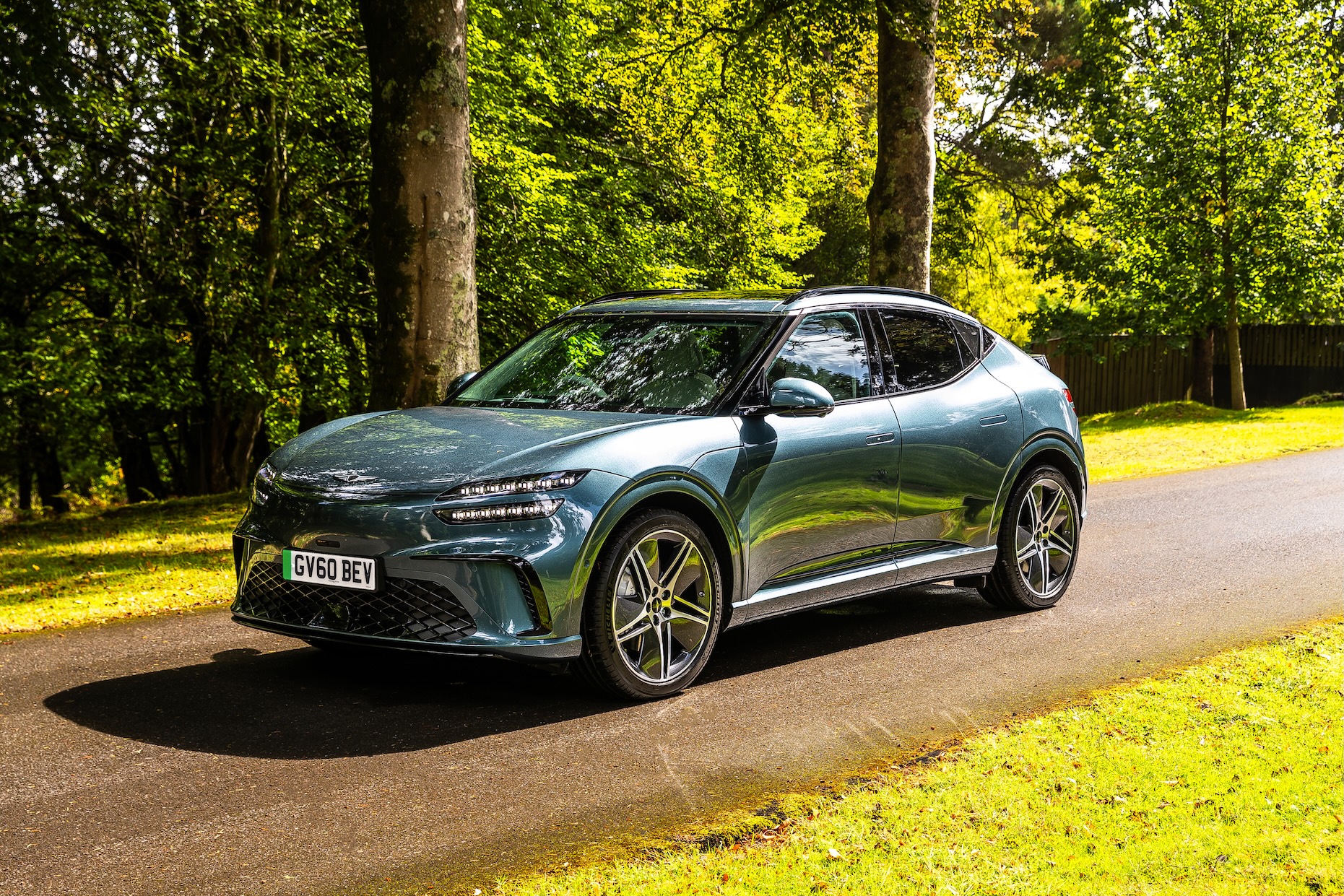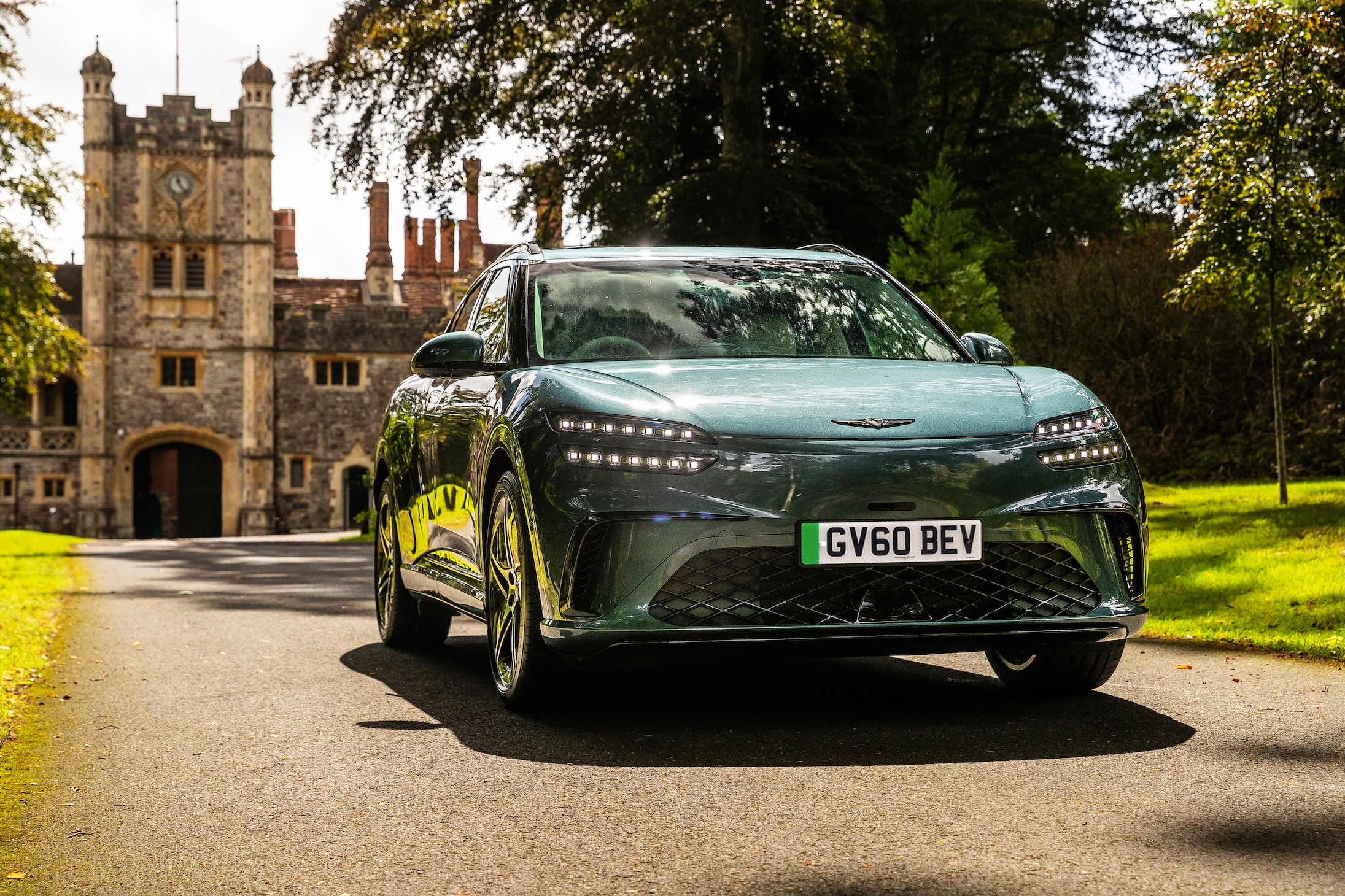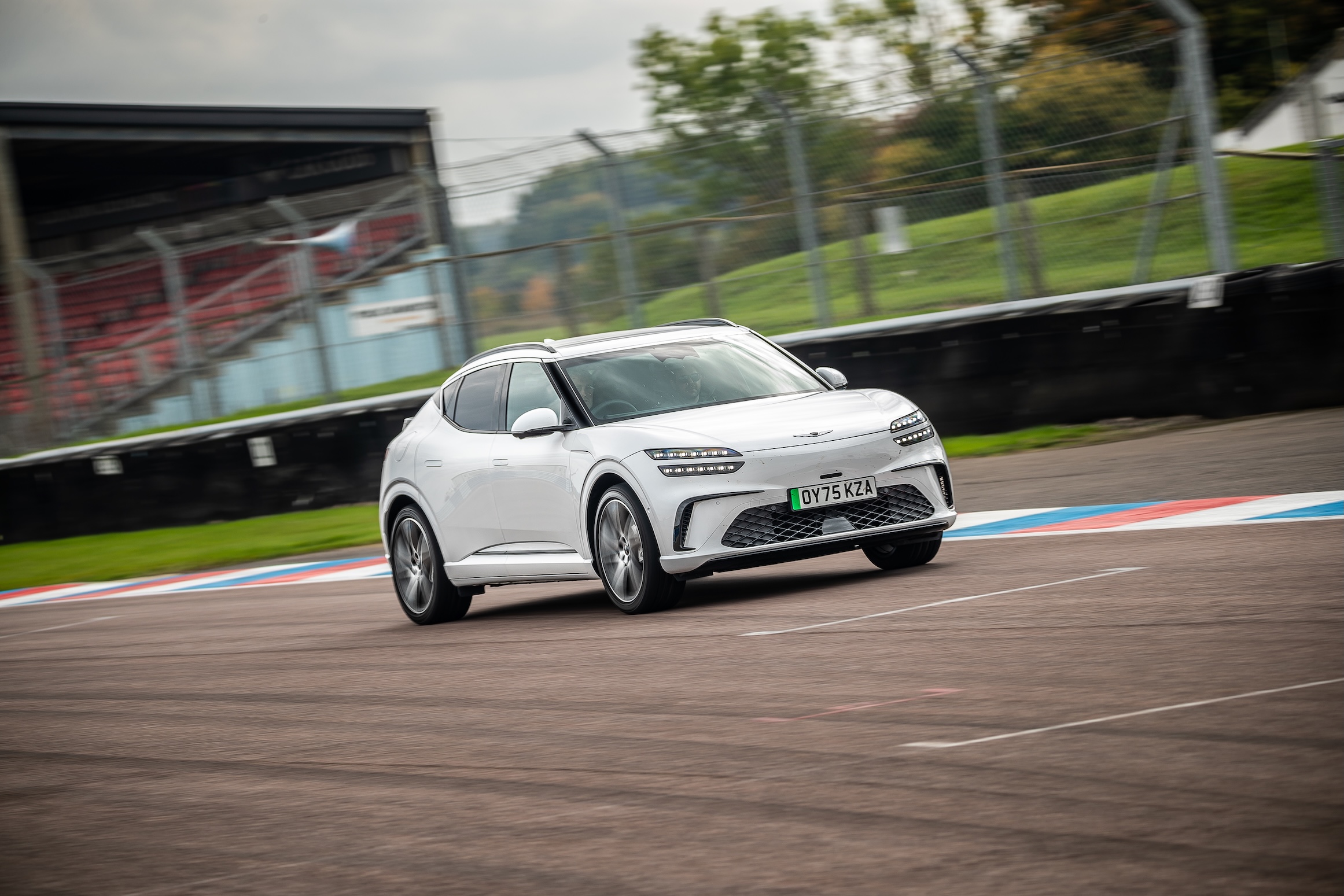The GV60 was the first all-electric car from Genesis, now it gets a substantial update that focuses on style and technology, writes Chris Pickering…
It says something about the pace of change in the electric car market that Genesis now feels like one of the old guard. Among the Jaecoos, BYDs and Skywells of this world, the Korean brand – a luxury offshoot of Hyundai and Kia – is positively a veteran, having established itself in the UK way back in 2021.
The all-electric GV60 followed shortly afterwards in 2022, but it’s now been treated to a comprehensive refresh that includes sharper styling, more technology and a bigger battery across the range.
The styling tweaks are relatively minor, but they make the new GV60 look noticeably more athletic than its predecessor. There’s a new front end with revised headlights that boast better optics; body coloured side skirts that give it a lower, sportier profile; and two new alloy wheel designs for the higher trim specs.
The range kicks off at £54,115 for the Pure edition, rising through the Sport at £58,515 to the Performance at £67,715. All use the same 84 kWh lithium-ion battery, but the Pure features a single 168 kW (228 hp) motor driving the rear wheels, while the Sport and the Performance models receive twin motor setups offering a combined maximum of 234 kW (318 hp) or 360 kW (490 hp) respectively.
The battery’s gross capacity has increased from 77 kWh to 84 kWh. As a result, the WLTP range of the Pure edition increases to 348 miles – fractionally behind the most efficient versions of the Hyundai Ioniq 5 and Kia EV6, with which the GV60 shares its underpinnings, but on the money for the class. Updates to the software and cooling mean that the bigger battery in the new GV60 takes the same time to charge as the old model, with 10-to-80% charging possible in as little as 18 minutes using a 350 kW fast charger.
Inside, the GV60 is said to be inspired by traditional Korean architecture. It’s an airy and pleasingly uncluttered design, with a distinctive floating centre console that adds to the sensation of space.
The dashboard is dominated by a 27-inch infotainment screen, which is commendably crisp to look at and responsive to use. You can use it as a touchscreen, but there’s also a rotary controller and a series of physical buttons. It’s a neat combination that provides the high-tech feel of the giant screen without forcing you to take your eyes off the road for common features such as heating and air conditioning.
The material quality is a step up from its Kia and Hyundai siblings, with brushed aluminium and quilted leatherette ensuring that even the entry-level model has a distinctly premium feel.
It’s practical too, with ample room for rear seat passengers, although the sloping rear roof line does eat into the boot space somewhat; it’s competitive at 432 litres (15.26 cu.ft), but not as big as the Ioniq 5 (520 litres or 18.36 cu.ft) or the cavernous Skoda Enyaq (585 litres or 20.66 cu.ft).
One of the areas where the Genesis really scores is equipment. Heated seats and a heated steering wheel come as standard, along with wireless phone charging, an electrically operated tailgate and a suite of driver assistance functions, including the semi-autonomous Highway Driving Assist mode. Electronically-controlled adaptive suspension is also standard, along with active noise cancellation.
Stepping up to Sport adds the dual-motor powertrain and 20-inch wheels, but not much else. The big leap comes with the Performance edition, which includes Nappa leather upholstery (optional on the other models) plus remote parking and massage seats as standard. To make the most of the increased power, you also get an electronic limited slip differential, a fun if somewhat pointless system that synthesizes an engine note and uses the regenerative braking paddles to mimic the gearshifts, and even a Drift mode.
The GV60 is pleasantly undemanding to drive. We spent most of our time in the Pure model, which feels more than quick enough for normal driving. With a 0-62 mph time of 7.8 seconds it’s approaching hot hatch performance, and the lack of four-wheel drive never felt like an impediment in the dry conditions of our test.
All that performance is delivered in typical electric silence, bolstered by features such as foam-lined tyres and laminated glass.
Genesis describes the GV60 as an SUV, but it’s a crossover at heart, with a somewhat elevated driving position rather than the lofty feel of a traditional 4X4. You get a good view out of the front, framed by the edges of the bonnet, which makes it an easy car to place on the road. Light, precise steering adds to the sense of agility, while the electronically-controlled suspension does a good job of keeping body roll in check. It’s surefooted rather than sporty, though. And there’s a slight firmness to the ride in the Pure, which doesn’t benefit from the semi-active suspension system that scans the road ahead in the top-spec models.
Speaking of which, we did sample the range-topping GV60 Performance on track. The long sweeping corners of the UK’s fastest race circuit at Thruxton were a brave place to launch a 2.2-tonne electric SUV, but it acquitted itself well, at least up to a point.
From a standing start, the near-500 hp Genesis felt predictably strong. Its 0-62 mph time of 4.0 seconds isn’t unusual in the world of high performance EVs, but it’s certainly rapid. Dynamic torque vectoring and adaptive suspension give it an impressive degree of agility, although occasionally you could still sense the electronic systems working quite hard to control all that mass. Try as we might, we couldn’t coax much throttle-adjustability out of it and the responses remained calm and controlled rather than outright playful.
The Hyundai Ioniq 5 N remains a more engaging option if you want to smoke the tyres in your electric crossover, but that could all change with the arrival of the hotter GV60 Magma edition later this year. For now, though, it’s the Pure that feels like the sweet spot in the range – it’s a useful step upmarket from the Kia or the Hyundai yet still within striking distance of their pricing.
VERDICT
There’s no getting away from the fact that it’s more expensive than its closest rivals, but as a somewhat plusher take on the mid-sized electric crossover, the GV60 has no shortage of charm.



